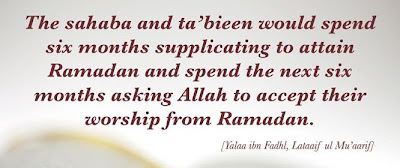
1. It is a condition of the fasting person to have the intention to fast. The intention is not to be uttered on the tongue; rather it is in the heart (your desire to fast).
2. It is Sunnah for the fasting person to eat suhoor, because the Prophet (saws) has said: “Eat suhoor for in suhoor there is blessing.” [al-Bukhaari, 1923; Muslim, 1059]
3. It is Sunnah to delay the suhoor and to hasten in breaking the fast.
Allah said: “and eat and drink until the white thread (light) of dawn appears to you distinct from the black thread (darkness of night), then complete your Sawm (fast) till the nightfall” [Al-Baqarah 2:187]
Al-Bukhaari (1919) and Muslim (1092) narrated from ‘Aa’ishah (ra) that Bilaal used to give the adhaan at night, and the Messenger of Allah (saws) said: ‘Eat and drink until Ibn Umm Maktoom gives the adhaan, for he does not give the adhaan until the dawn comes.”
With regard to what appears on timetables as 'imsaak' – whereing people stop eating roughly 10-15 mins before Fajr Adhaan, the scholars have said that there is no basis for such a thing and goes against the Sunnah.
Ibn Hazm narrated that ‘Umar ibn al-Khattaab used to say: “If two men are uncertain about dawn let them eat until they are certain.”
And it was narrated that Makhool said: I saw Ibn ‘Umar take a bucket of Zamzam water and say to two men, “Has dawn come?” One of them said: “It has come,” and the other said, “No (it hasn’t),” so Ibn ‘Umar drank (the water).
And It was narrated that Ibn ‘Abbaas said: “Allah has permitted drinking so long as you are uncertain, i.e., about the dawn.” [al-Muhalla 4/367]
It is Sunnah to hasten (be quick) in breaking the fast. Al-Bukhaari (1957) and Muslim (1098) narrated from Sahl ibn Sa’d that the Messenger of Allah (saws) said: “The people will continue to do well so long as they hasten to break the fast.”
4. It is Sunnah to break the fast with fresh dates. Anas (ra) who said: The Messenger of Allah (saws) used to break his fast with fresh dates before praying; if there were no (fresh dates) then with dry dates, and if there were no (dried dates) then he would take a few sips of water. [Abu Dawood, no. 2356; al-Tirmidhi, 696; classed as hasan in al-Irwa’, 4/45]
5. It is Sunnah to say when breaking the fast: “Dhahaba al-‘thamau’ wa abtallat al-‘urooq wa thabata al-ajru insha'Allah (the thirst is gone, the veins have been moistened and the reward is assured, if Allah wills).” [Abu Dawood, 2357; al-Bayhaqi, 4/239; classed as hasan in al-Irwa’, 4/39]
6. Sheikhul Islam Ibn Taymiyyah said in relation to things that break the fast: "Apart from hayd (menstruation) and nifaas (post-natal bleeding), other things that can break the fast are only considered to do so if the following three conditions apply: if a person knows that it breaks the fast and is not ignorant; if he is aware of what he is doing and has not forgotten that he is fasting; if he does it of his own free will and is not forced to do it.
Among the things that break the fast are actions that involves the expulsion of bodily fluids, such as intercourse, vomiting, menstruation and cupping, and actions that involve ingesting matter, such as eating and drinking." [Majmoo’ al-Fataawa, 25/148]
Sheikh Muhammad Al-Munajjid said: "Among the things that break the fast are things that are classified as being like eating or drinking, such as taking medicines and pills by mouth, or injections of nourishing substances, or blood transfusions. Injections that are not given to replace food and drink but are used to administer medications such as penicillin and insulin, or tonics, or vaccinations, do not break the fast, regardless of whether they are intra-muscular or intravenous. [Fataawa Ibn Ibraaheem, 4/189]. But to be on the safe side, all these injections should be given during the night." [See the book, 70 Matters Related to Fasting]
Some scholars said: Having a blood sample taken does not break the fast and is permissible because it is something that is needed. [Fataawa al-Da’wah: Ibn Baaz, no. 979].
The Prophet (saws) has said: “Whoever vomits unintentionally does not have to make up the fast later on, but whoever vomits on purpose does have to make up the fast.” [Sahih hadeeth narrated by al-Tirmidhi, 3/89]
Ibn Qudaamah said in al-Mughni (4/397):
"The scholars are unanimously agreed that it is not permissible for women who are menstruating or bleeding following childbirth to fast, and that they should not fast in Ramadaan but should make up missed fasts. If they do fast, their fast is not accepted. ‘Aa’ishah said: “We used to menstruate at the time of the Messenger of Allah (saws), and we were commanded to make up the fasts, but we were not commanded to make up the prayers.” [Agreed upon]. The one who commanded them thus was the Prophet (saws). Abu Sa’eed said: The Prophet (saws) said: “Is it not the case that when one of you menstruates, she does not pray or fast? That is what is meant by lacking in religious commitment.” [al-Bukhaari]
7. If a person eats something, forgetting that he is fasting, then his fast is not invalidated but he has to spit the food out and continue fasting for the rest of the day. The Prophet (saws) has said: “If he forgets, and eats and drinks, then let him complete his fast, for Allaah has fed him and given him to drink.” [al-Bukhaari, Fath, no. 1933]
No comments:
Post a Comment